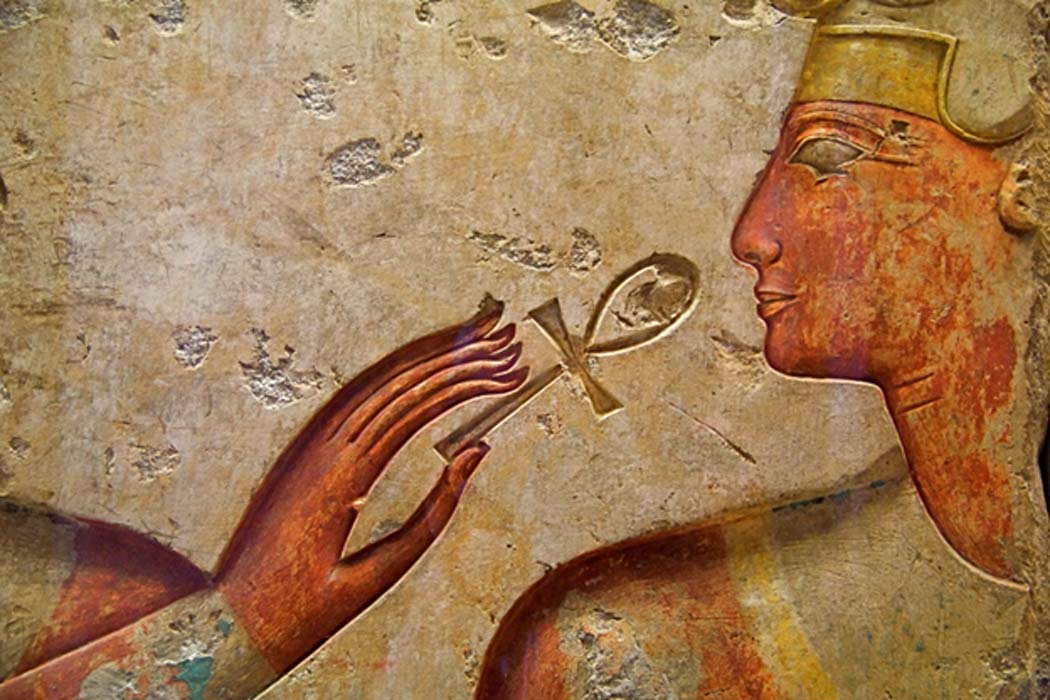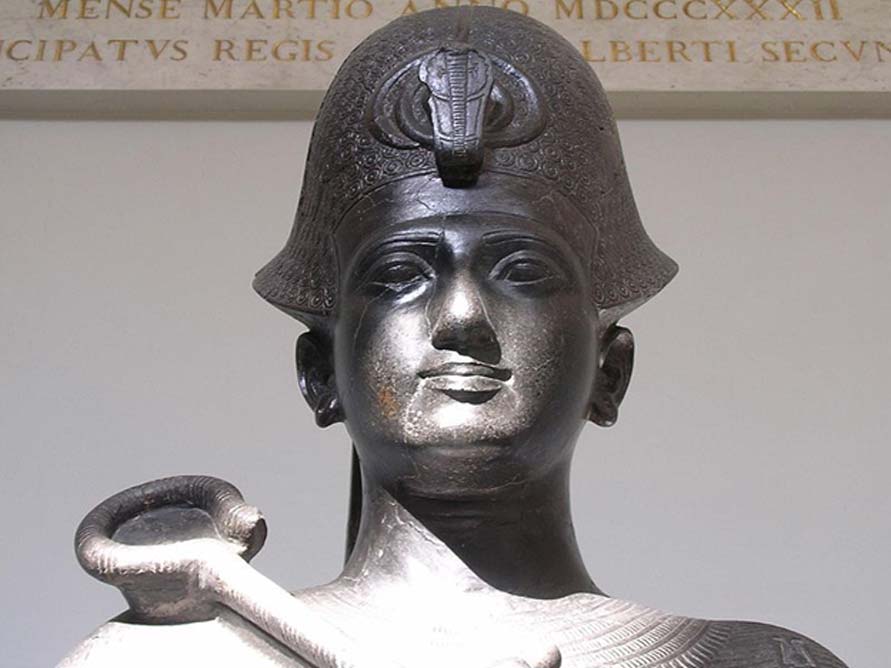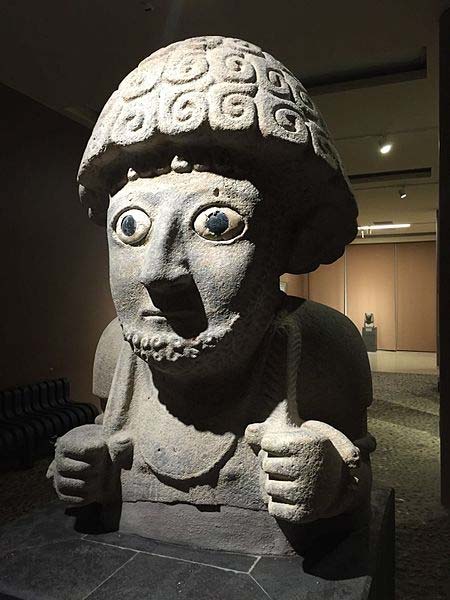
The Great and Powerful Pharaoh, Ramses: The Battle of Kadesh, a Clash of Titans – Part I
Many believe Ramses II (1303-1213 BCE) is the most celebrated, powerful, and greatest pharaoh of the Egyptian Empire. It is not hard to see why. The battle of Kadesh would immortalize Ramses II in our history books.
A Patient Warrior
Ramses was born in a very successful and well trained military family. His grandfather, Ramses I and his great-grandfather, Seti, had both been commanders in the field. Ramses first taste of action began as a teenage when he accompanied his father Seti I on a military campaign against Libya.

Pharaoh Ramesses II. Statue in the Torino Museum. (CC BY-SA 3.0)
Ramses II took the throne in 1279 BCE, and just two years into his reign a sea people known as the Sherden started attacking Egyptian cargo ships. Ramses, understanding that it was useless to go after them in the open sea with his own ships, decided to lay out a trap by placing lucrative items along strategic areas along the coast. By enticing them, he hoped to lure them in before striking. When they took the bait, Ramses forces struck and decisively defeated the enemy. This battle shows Ramses used patience and stealth as his strategic and tactical weapons—both of which he would demonstrate at the battle of Kadesh.
Kadesh was a city located in the northern Levant (Syria) near or on the Orontes River. The Battle of Kadesh is regarded as the earliest battle recorded in great detail. The battle of Kadesh pitted two great empires against each other: Egypt, led by Ramses II, and the Hittite Empire, led by Muwatalli II. The reason for this soon-to-be confrontation was due to Thutmose III’s victory over Megiddo in 1457 BCE which also included the taking of Kadesh. This gave Egypt a sphere of influence that stretched far into northern Levant and Mesopotamia, giving the Egyptians access to the lucrative trade routes.
Politicking and New Kings
A century later, the Hittite King Suppiluliuma (1344-1322) continued the honor the agreement with Egypt as to where the line was drawn. But when the king of Kadesh by the name of Shuttarna (Shutatarra) decided to attack him, Suppiluliuma had no choice but to retaliate. The result was a Hittite victory. The king and the leading citizens were sent into captivity. It is interesting that the Egyptians showed little interest. Suppiluliuma placed the defeated king's son, Aitakkama on the throne of Kadesh. Aitakkama swore his allegiance to Suppiluliuma and became a Hittite vassal.

Statue attributed as Suppiluliuma. (CC BY-SA 4.0)
King Aitakkama probably saw the Hittites as a much greater ally, since the Egyptians did not come to aid of his father. Aitakkama took advantage of this situation (as Egypt appeared to be weak), by making alliances with the regional kings, particularly the King Aziru of the Amurru. He did so in order to expand his own territory. It would be naive to think the Egyptians brushed it off. Rather, they felt troubled, as it threatened their trade and security.




